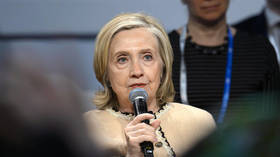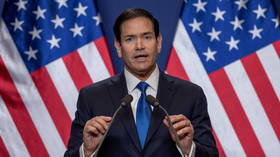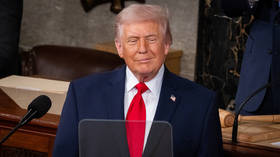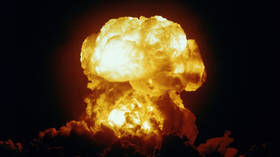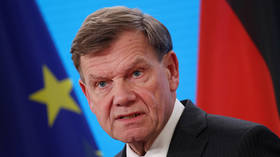Parallels between Washington and ancient Rome become apparent
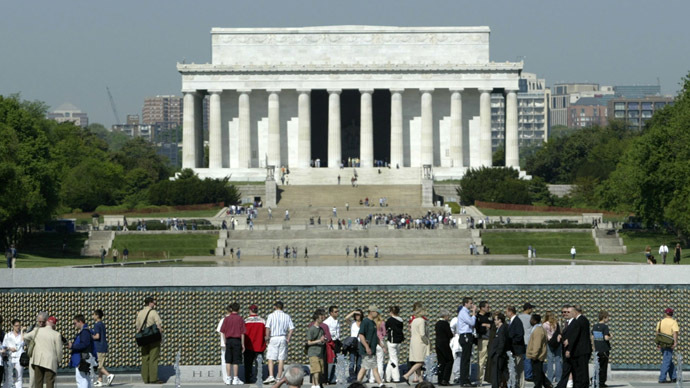
As with its Roman predecessor, Washington presides over a global empire which is economic, political, and cultural in scope, one secured by a military capability that far exceeds its rivals or any potential alliance of its rivals.
And as in the days when Rome held sway, and people from all over the known world coveted the prize of Roman citizenship, so millions today dream of attaining US citizenship, perceived as the sine qua non of validation and status.
The lure of the American dream - one of the greatest myths ever perpetuated – has successfully sucked millions of immigrants to the United States from all over the world for many years, helping to fuel its economic might.
Further, the association that once existed between Rome and civilization finds its echo today in the association between America and democracy, considered the unimpeachable barometer of civilization in the 21st century; even though the enduring power of both was and is secured by the willingness and capacity to unleash war on an overwhelming scale.
The countless wars fought by Rome throughout its long history are matched in relative terms by those unleashed by Washington over the past century alone. In every region of the world US military might has been deployed in one shape or another, either covertly or overtly, with the aim of maintaining or advancing US geopolitical and economic advantage.
The frontlines in this struggle to cement the writ of Washington are currently the Middle East and Eastern Europe, specifically Ukraine. With regard to the former, the US, supported by its various regional and geopolitical allies, has in sown chaos and carnage over the past decade, following the kind of pretext employed by Caesar for mounting his invasion of Gaul in 59 BC.
Just as first Iraq, then Libya, and now Syria have been depicted as constituting a threat to civilization by Washington today, Gaul and the many tribes which made up this vast ancient European hinterland was held to constitute same by a Roman elite with a rapacious hunger for ever more wealth and resources to feed its insatiable appetite for power.
And just as now vis-a-vis the US and its allies Rome also had its willing satraps, states and tribes eager to participate in its carve up of the world's resources, determined to position themselves on the right side of power.
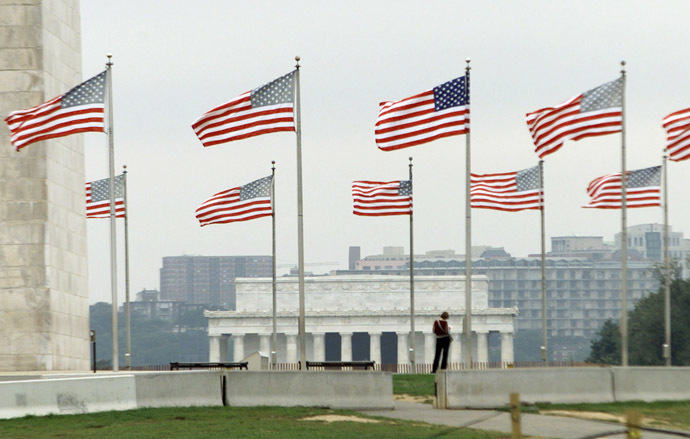
Rome brooked no law, no impediment to the projection of imperial power other than those of its own making. Likewise, today, the US increasingly demonstrates a staggering and egregious disregard for international law in its own projection of imperial power. The UN is nothing more than a rubber stamp for decisions already taken in Washington; and when it refuses to be a rubber stamp, as with this imminent military intervention in Syria, it is bypassed without any compunction or pretense of justification other than that decided the president and his cabinet.
But is it not significant that the increasing use of hard power to cement Washington's writ around the world correlates with its relative economic decline and the emergence of China and Russia in defiance of Washington's objective of the unipolar world that seemed assured upon the collapse of the Soviet Union in 1991?
The 'End of History' bunkum brought to us by neocon hack Francis Fukuyama reflected the sense of triumphalism that intoxicated the US government and its institutions over what it saw as the ideological defeat of Soviet communism. The belief that capitalism and liberal democracy would endure for all time as the apogee of civilization and development was prevalent. It was hubris taken to an extreme, and which came back to bite its disciples with the atrocity of 9/11.
Since then the projection of military might has poisoned US society from top to bottom. The acceptance and apotheosis of violence is embedded in American culture, as is the gross inequality and social and economic injustice which blights the lives of millions of its citizens. In a very real sense injustice at home acts as the foundation of the injustice Washington projects abroad under the smokescreen of liberal democracy.
At home and abroad Washington presides over crises of its own making. In this regard it is like an out of control juggernaut, destroying everything in its path, leaving a trail of death and destruction in its wake. When Gandhi was famously asked what he thought of Western civilization and replied, “I think it would be a good idea,” he described perfectly the disconnect between the rhetoric and policies emanating from the US capital.
Hope going forward for a world straining under the weight of US hegemony lies with the knowledge that ultimately the Roman Empire fell, as all empires fall. As the Roman philosopher and stoic Seneca warned his compatriots, "A kingdom founded on injustice never lasts."
Washington and its allies would be wise to take heed.
The statements, views and opinions expressed in this column are solely those of the author and do not necessarily represent those of RT.
The statements, views and opinions expressed in this column are solely those of the author and do not necessarily represent those of RT.



